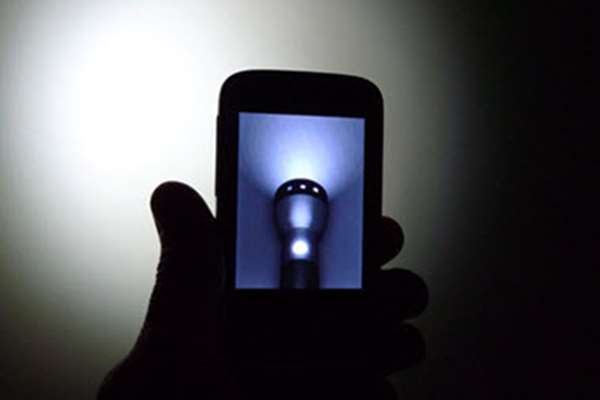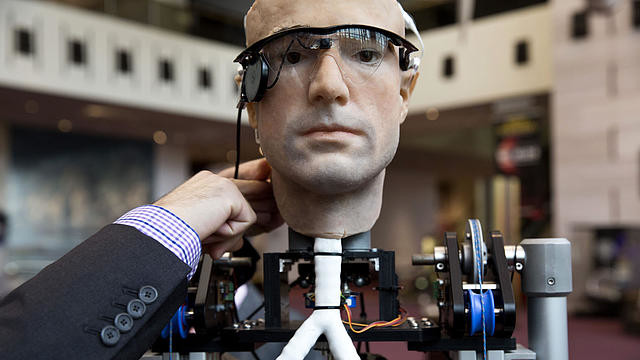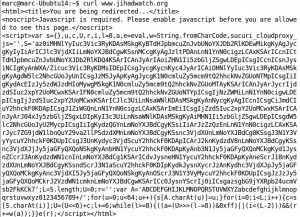Does the government need a search warrant to know where you’ve been? Not if your cell phone provider knows. If you don’t like how that sounds, there may be ways to change it.
Take the case of Quartavious Davis, a Florida man convicted of robbing at gunpoint a pizzeria, a gas station, a drugstore, an auto parts store, a beauty salon, a fast food restaurant, and a jewelry store. The prosecution offered multiple lines of evidence, but there was one in particular that Davis’s lawyers objected to: records the government obtained from Davis’s cell phone provider, MetroPCS.
The records, which MetroPCS kept in its normal course of business, showed “the telephone numbers for each of Davis’s calls and the number of the cell tower that connected each call.” From this information, police concluded that “calls to and from Davis’s cell phone were connected through cell tower locations that were near the robbery locations, and thus Davis necessarily was near the robberies too.”
Prosecutors got their hands on the MetroPCS cell tower records using a court-ordered subpoena. In criminal cases like Davis’s, courts may grant subpoenas on “specific and articulable facts showing that there are reasonable grounds to believe” that the records sought “are relevant and material to an ongoing criminal investigation.” Although this standard is higher than that for typical subpoenas, it’s lower than the Fourth Amendment’s probable cause standard.
Not Even a Search
On appeal, Davis argued that the cell tower records were obtained in violation of the Fourth Amendment’s prohibition on unreasonable searches and seizures. But the 11th Circuit — the federal appeals court encompassing Alabama, Georgia, and Florida — disagreed (United States v. Davis).
In fact, the government’s actions weren’t even a “search,” according to the court. In legal terms, a search occurs only when police invade a person’s reasonable expectation of privacy. For example, you have a reasonable expectation of privacy in the content of your phone conversations — what is actually said during your call — so eavesdropping on the conversation would constitute a search.
In Davis’s case, though, the police didn’t eavesdrop on his conversations. Nor did they use GPS to track his precise movements while he was making them. Because they merely obtained business records from a third party, the court says that the police didn’t invade Davis’s privacy:
Davis has no subjective or objective reasonable expectation of privacy in MetroPCS’s business records showing the cell tower locations that wirelessly connected his calls at or near the time of six of the seven robberies.… Instead, those cell tower records were created by MetroPCS, stored on its own premises, and subject to its control. Cell tower location records do not contain private communications of the subscriber. This type of non-content evidence, lawfully created by a third-party telephone company for legitimate business purposes does not belong to Davis, even if it concerns him.
Because there wasn’t a “search,” the Fourth Amendment didn’t even apply.
Outdated Doctrine Meets Modern Society
Despite the court’s logic, something about this case still makes many observers feel uneasy. Even AT&T filed a brief in the case, arguing that the government’s actions were illegal. We all turn over huge amounts of information to third parties every day, and almost all of our activities can be tracked through our “smart” devices. And as the amount of data that businesses collect on us grows, so do concerns over the government’s ability to access that data.
So when the 11th Circuit focused its decision in Davis on something called the third-party doctrine, there was reason for a little gasp. The third-party doctrine was developed by the Supreme Court in the 1970s to draw a line between a person’s “reasonable” expectation of privacy and the information that person voluntarily shares with third parties. Back then, the Supreme Court held that a person has no reasonable expectation of privacy over his or her bank records, because that information was voluntarily provided to the bank. Nor can you have a reasonable expectation of privacy over the phone numbers you dial, because you furnish those numbers to the phone company in order to place calls. And so the government may subpoena these records from the business collecting them without meeting heightened standards under the Fourth Amendment.
The Davis court discussed these cases to support the premise that when people turn over their data to third parties by virtue of using those parties’ services, that information falls outside Fourth Amendment protection. A breathtakingly low point can be found in one of the judges’ concurring opinions:
If a telephone caller does not want to reveal dialed numbers to the telephone company, he has another option: don’t place a call. If a cell phone user does not want to reveal his location to a cellular carrier, he also has another option: turn off the cell phone.
In other words, if you want your information protected by heightened privacy standards, go off the grid.
Today, that position is practically untenable. And this is what makes the 11th Circuit’s opinion troubling: it allows the government easy access to your data by virtue of your participation in modern society. The court’s holding helps grease the slippery slope that takes us away from historically reasonable expectations of privacy.
The court attempted to soften the blow by categorizing the subject information as noncontent data. In other words, the data in the Davis case was less private because it was not the actual substance of phone calls, texts, or other communications. Instead, it was the nonsubstantive cell-tower data that allowed the government to track where Davis was when he made or received calls. But we all know that a precise record of our movements reveals a lot about us, as the dissenting judge in the Davis case pointed out:
A person who knows all of another’s travels can deduce whether he is a weekly church goer, a heavy drinker, a regular at the gym, an unfaithful husband, an outpatient receiving medical treatment, an associate of particular individuals or political groups — and not just one such fact about a person, but all such facts.
Toward Privacy
There is still a chance that the Supreme Court will reverse the 11th Circuit’s holding. Even if it doesn’t, other options exist. As mentioned in the Davisdecision, Congress can still legislate greater privacy protections.
The market provides another option. Although a court order forced MetroPCS to provide its records, “federal law did not require that MetroPCS either create or retain these business records.” As technology changes, and as we all become more attuned to privacy issues, we will look to the market for options. When this happens, cell phone providers will benefit from offering an “enhanced privacy” version of their services. Some customers will prefer that their data not be collected at all — or that it be anonymized. Providers could charge a higher price for anonymous services, or customers could forego certain personalized services.
By providing customized levels of privacy, the market can create de facto immunity from third-party “searches.”

Nicole Kardell
Nicole Kardell is an attorney with Ifrah Law, a Washington, DC-based law firm. She represents clients in government enforcement actions and other regulatory compliance matters before federal and state agencies.

Joseph S. Diedrich
Joseph S. Diedrich is a Young Voices Advocate and a law student at the University of Wisconsin.






















 Now about this code. I won’t post it here as text, as we know they will flag that also, but any competent developer can tell there is nothing malicious there. It’s no secret. It’s simple base64 encoding, easily decoded, not that it will mean much. The point is, it’s easy to see it’s not malicious. It’s easy for Avast to add a signature to their scanners even if they did see this scary “obfuscation.” Their choice of words is interesting: when script is “encoded” for good reason, as this is, we just call it “encoded,” not obfuscation, as developers can easily decode it to see the real code behind it, using
Now about this code. I won’t post it here as text, as we know they will flag that also, but any competent developer can tell there is nothing malicious there. It’s no secret. It’s simple base64 encoding, easily decoded, not that it will mean much. The point is, it’s easy to see it’s not malicious. It’s easy for Avast to add a signature to their scanners even if they did see this scary “obfuscation.” Their choice of words is interesting: when script is “encoded” for good reason, as this is, we just call it “encoded,” not obfuscation, as developers can easily decode it to see the real code behind it, using